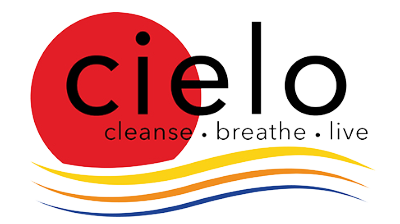
Medical Data on Breathwork
Stress Reduction and Good Health.
There are already scores of medical practitioners who recognize the value of deep breathing and the list is growing. For example, world-renowned cardiologist Dr. Dean Ornish says in his book; Dr. Dean Ornish’s Program for Reversing Heart Disease, that deep breathing is the best stress reducer known to man. It has been medically proven that stress has a direct impact on the immune system. When your stress level is up, your immune system is down: When your stress level is down, your immune system is up. We need to keep our immune system strong so we can fight off sickness. The immune system is our number-one line of defense against the viruses, bacteria and other invaders that make us ill, causing everything from minor colds and flu to some major illnesses. Deep breathing increases the oxygen levels in the blood, which strengthens our immune systems.
Dr. Alec Borsenko states, “Oxygen gets rid of toxicity. Bacteria, viruses and parasites are destroyed in the presence of oxygen – especially cancer.” Breathing controls the flow of the lymphatic system. We have four times more lymphatic fluid than blood. Lymphatic cells release toxins from the body.
Paul Bragg, author of Super Breathing for Super Energy and also the person who developed the first health food store in this country in the late 1930’s says in his book that we are slowly committing suicide in this country because of the way we live and breathe. According to Bragg, shallow breathing starves the body of vital oxygen and causes premature aging. Bragg notes that oxygen-starved people go to bed tired and wake up tired. They suffer from headaches, constipation, indigestion, muscular aches and pains, stiff joints, aching backs, and the list goes on.
Paul Bragg, author of Super Breathing for Super Energy and also the person who developed the first health food store in this country in the late 1930’s says in his book that we are slowly committing suicide in this country because of the way we live and breathe. According to Bragg, shallow breathing starves the body of vital oxygen and causes premature aging. Bragg notes that oxygen-starved people go to bed tired and wake up tired. They suffer from headaches, constipation, indigestion, muscular aches and pains, stiff joints, aching backs, and the list goes on.
Dr. McVea explains the importance of oxygen in this way: “More than anything else, good health and well-being is dependent on the maximum production, maintenance and flow of energy, which is produced by oxygen. Oxygen contributes to proper metabolic function, better circulation, assimilation, digestion and elimination. It helps purify the blood, keeping it free from cellular build-up. Sufficient oxygen gives the body a chance to rebuild itself and strengthen its immune system. It is our natural defense against disease.”
Medical research shows that over 90 percent of the body’s energy is produced by oxygen, and that the more oxygen we have in our system, the more energy we produce. Our ability to think, feel, and act comes from the energy created by oxygen.
The Breathwork technique that we use delivers vital oxygen to the body, delivering it to the blood, which in turn delivers it to our cells. Breathwork is one of the greatest catalysts to keeping the immune system peaked. It also has a calming and energizing effect on the nervous system. A Breathwork session is a total package for stress reduction, relaxation, good health and wellbeing. Oxygenation is the key to living a healthy and balanced life.
Scientific studies show that Breathwork may:
• Boost the immune system (Collinge and Yarnold 2001.
http://journals.sfu.ca/seemj/index.php/seemj/article/viewFile/326/288)
• Allow access to divergent thinking; ‘the most important ingredient of creativity’ (Colazato et al 2012.
https://www.frontiersin.org/articles/10.3389/fpsyg.2012.00116/full)
Develop self-awareness and encourage positive temperament changes (Miller and Nielson 2015.
https://www.ncbi.nlm.nih.gov/pubmed/26565611)
• Assist with Psychotherapy in reducing anxiety and increasing self esteem (Holmes et al 1996.
http://journals.sfu.ca/seemj/index.php/seemj/article/view/325/287)
• Be effective in respiratory rehabilitation of COPD patients (Cancelliero- Gaiad KM et al 2014 and Harvard Medical School.
https://www.ncbi.nlm.nih.gov/pubmed/25075999)
• Reduce chronic back pain (Mehling WE at al 2005.
https://www.ncbi.nlm.nih.gov/pubmed/16053121)
• Improved generalized anxiety, social anxiety, music performance anxiety and depression (Wheble et al 2017 p.105.
https://performancescience.org/wp-content/uploads/2018/08/isps-2017-pro%02gram.pdf)
• Lower blood pressure (Jagomagi et al 2003 and Mori H at al 2005.
https://www.ncbi.nlm.nih.gov/pubmed/14624171)
• Improve Symptoms, quality of life and psychological impact of asthma (Bruton and Thomas 201.
https://www.ncbi.nlm.nih.gov/pubmed/21150439)
• Improve quality of life (self care, depression, anxiety) and pulmonary function in lung cancer patients (W Liu et al 2013.
https://www.ncbi.nlm.nih.gov/pubmed/23599740)
• Reduce tension -anxiety and fatigue in cancer patients undergoing chemotherapy (Hayama And Inoue 2012.
https://www.ncbi.nlm.nih.gov/pubmed/22500846)
• Reduce oxidative stress and improve anthropometry and glycemic control in Type 2 diabetes (Hedge SV et al 2012.
https://www.ncbi.nlm.nih.gov/pubmed/22789789)
• Reduce exercise induced oxidative stress in athletes (Matarelli et al 2011.
https://www.ncbi.nlm.nih.gov/pubmed/19875429)
• Improve muscle strength and endurance in spinal cord patients (Van Houtte et al 2008.
https://www.ncbi.nlm.nih.gov/pubmed/18509576)
• Improve GERD (gastroesophageal reflux disease) (Eherer et al 2012.
https://www.ncbi.nlm.nih.gov/pubmed/22146488)
• Help with motion sickness (Stromberg et al 2015.
http://www.ingentaconnect.com/content/asma/amhp/2015/00000086/00000005/art00007;jsessionid=3qnel645p77as.x-ic-live-01)
